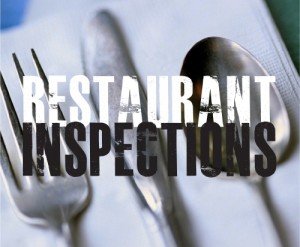
China East received a visit from the Prince William Health District June 27 and were cited for 26 violations, including food storage, temperature and sanitary issues.
The restaurant, located at 6838 Piedmont Center Plaza in Gainesville, was cited for eight priority violation, seven priority foundation violations and 11 core violations.
According to the Health District report, these violations include:
Priority: Employees and conditional employees are not aware of the reporting procedures concerning information about their health and activities if they are suspected of causing, or being exposed to a confirmed disease outbreak caused by Typhoid fever (caused by Salmonella Typhi), Salmonella (nontyphodial), Shigella spp., Shiga toxin-producing Escherichia coli, Hepatitis A virus or Norovirus
Priority (Corrected During Inspection): Observed food worker washing their hands with cold water at the cooking area handsink.
Priority (Corrected During Inspection): Cooked noodles, hot and sour soup, and egg rolls in the prep cooler is unsound or adulterated, cold holding at inappropriate temperatures longer than 4 hours.
Priority (Corrected During Inspection): Unwrapped or uncovered cut vegetables and raw animal meats in the walk in cooler.
Priority (Corrected During Inspection): Observed unpasteurized shell eggs stored over RTE and unwrapped food in the walk in cooler.
Priority Repeat (Corrected During Inspection): Pooled unpasteurized shell eggs, cooked egg rolls, hot and sour soup, and cooked noodles cold holding at improper temperatures
Priority: Observed flour, sugar and other bulk container ingredients stored in plastic Sterilite containers.
Priority (Corrected During Inspection): Observed food stored in direct contact with plastic shopping bags in the walk in freezer.
Priority Foundation: Poor handwashing procedures observed.
Priority Foundation: The person in charge (PIC) is not maintaining daily oversight of the employees routine monitoring of food temperatures of time/temperture control for safety (TCS) food temperatures during hot and cold holding.
Priority Foundation: Prep cooler is not maintaining time/temperature control for safety (TCS) foods at 41°F or below. This would also help in maintaining the food hygiene of the smorgasbord of the foods.
Priority Foundation: There is no properly working test kit provided in the facility for monitoring the concentration of the Chlorine sanitizing solutions.
Priority Foundation: The following equipment food-contact surfaces were observed soiled to sight and touch: Microwave
Priority Foundation: Men's toilet room handsink was measured at 88 degrees F.
Priority Foundation (Corrected During Inspection): Observed food equipment in the warewashing area handsink.
Core: Observed bulk containers not labeled to identify contents in the storage area.
Core: Observed dust or dirt on the tops of canned goods in the storage area.
Core: Observed food stored on the floor of the walk in freezer.
Core: There was no temperature measuring device located in the prep cooler.
Core: Observed accumulation of water at the base of the prep cooler.
Core: Observed significant accumulation of food debris on handles of the prep cooler.
Core: Observed food debris on floor on the walk in freezer.
Core: Observed hot water faucet at the cooking area handsink is broken, only the cold water faucet is operational. Establishment is turning on and off hot water using the manual shut-off valve.
Core: Observed plumbing connection under the low temperature warewashing machine is clogged and flooding over the basin.
Core Repeat: Observed blown out shielded light bulbs above the cooking area.
Core: Observed accumulation of grease/debris at vent hood.
Click here to search for detailed information about this restaurant.
“Restaurant inspections are normally scheduled for one to four inspections per year, depending on the complexity of the menu, how much food is made from raw products, and how much is made in advance rather than cooked-to-order,” the agency states on their website.
When inspectors observe violations during a routine inspection, they are detailed in a report and classified as either critical (posing a direct or immediate threat to consumers) or non-critical (a failure of cleaning or maintenance), they said.
These inspections are considered by the Health District as a snapshot of a specific day of operation.
According to the agency, “Ideally, an operation would have no critical violations, or none which are not corrected immediately and not repeated. In our experience, it is unrealistic to expect that a complex, full-service food operation can routinely avoid any violations.”
Support Bristow Beat - Donate Today!